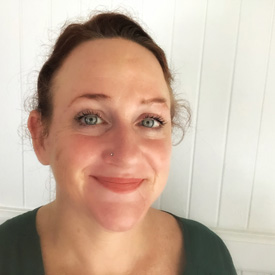 Picture this: San Francisco, circa 2001. Gay Pride Parade, all down Market Street, float after float with loud, proud, gorgeously out human beings. Music playing so loud that the street would shake, parade watchers crying out, laughing, joining in the brilliant, strong energy wafting through the entire city. Contagious joy, so much beauty in motion, artistic displays, flamboyance.
Picture this: San Francisco, circa 2001. Gay Pride Parade, all down Market Street, float after float with loud, proud, gorgeously out human beings. Music playing so loud that the street would shake, parade watchers crying out, laughing, joining in the brilliant, strong energy wafting through the entire city. Contagious joy, so much beauty in motion, artistic displays, flamboyance.
Gay pride has always been that for me, and I’ve always associated “pride” with the beauty in motion that is so present in the parades, in the dancing, the music, in the color, fashion, sparkly awesomeness. It’s been a pull, a draw, an obvious allure.
Or… was it so obvious? I always thought it was. But I think that was just me, with what I knew and what was normal to me. I was shocked 20 years later, when the lesbian friend of a friend was beaten up in a bar for flirting with a straight girl. In 2021, in Kona, Hawaii. A lesbian getting beaten up for flirting.
I saw then that pride parades are so much more than “fun,” so much more than the music, color, dancing, and joy. They truly are expressions of protest, proclaiming presence, boldly claiming space. They are a testimony to human resiliency and our capacity to transform oppression, segregation, pain, and trauma.
Pride is a Protest
Pride in the face of repression and subjugation is in and of itself a protest. Pride in this context is a courageous claim to validity. It’s a brave expression of belonging, even when the culture or the country is saying otherwise. Pride is like a foot stomp, a head toss, a call from the heart that says, “I belong! I have a right to be here!”
As a disabled woman who has spent the better part of her life trying to “pass” as non-disabled because of intense feelings of unbelonging, this means everything, speaks to my heart. This is a river I can jump in, a wind to waft on. It’s who I want to be when it feels like the world says I need to fight for every right, or when I need to prove yet again why my child needs an accommodation. Proclaiming my pride in who we are – disabled people, a disabled family – feels as brazen and courageous as it gets. Pride says that we have a right to be in the world. Pride says that we were meant to be here. Pride says that we have a place at the table, and pride says that the table needs to be accessible.
Back to Pride Parades.
Representing the “B” in LGBTQ+ (bisexual), I feel a deep connection with my rainbow community. I feel proud of all that we are, all that we express, all that we bring to the world. I feel the power of pride, the protest it represents through its non-conformity and I am energized to carry that through to my disabled world.
 Meriah Hudson Nichols is originally from a sheep ranch in Cloverdale, California, but grew up in countries around the Pacific Basin. She studied education, human resource development, training, and project management and spent over twenty years in careers with connections with her degrees. As a deaf woman, mother of a child with Down syndrome and daughter of a woman with fibromyalgia, she is passionate about disability rights, education and employment. In her spare time she writes, takes photos, paints and travels.
Meriah Hudson Nichols is originally from a sheep ranch in Cloverdale, California, but grew up in countries around the Pacific Basin. She studied education, human resource development, training, and project management and spent over twenty years in careers with connections with her degrees. As a deaf woman, mother of a child with Down syndrome and daughter of a woman with fibromyalgia, she is passionate about disability rights, education and employment. In her spare time she writes, takes photos, paints and travels.
